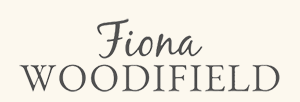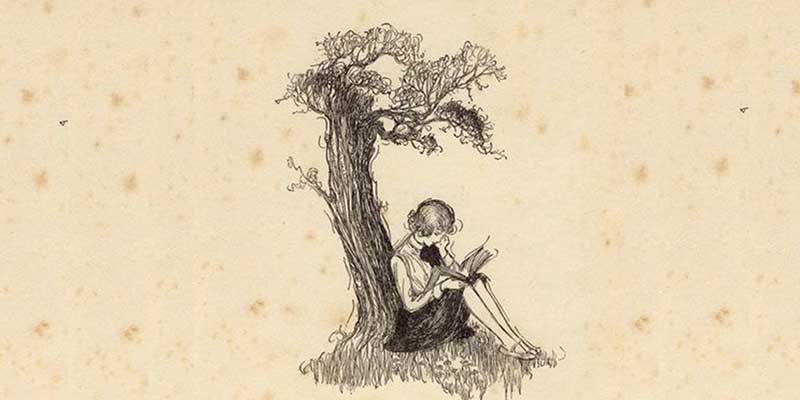I have been posting recently using the writer’s platform Substack which you can subscribe to for free to receive new posts and support my work.
Here is one of my Substack posts:
So it’s been a few weeks since I last wrote, because sometimes as a mum in the middle, life simply gets in the way and even for someone who is used to juggling, the balls are being thrown faster and more frequently and I’m having to work harder and harder to keep them all in the air at the same time.
But it’s at times like these that you find out who your real soulmates are and as always I am super grateful for my amazing girls, especially G and F, who rally round, helping, supporting, doing practical jobs and lending a sympathetic ear.
So I was super thrilled the other week to be able to say thank you to them with a girls’ night out. Well two of them anyway, M was with her carer and ML was staying with her girlfriend. K looked after little A. So G, F and I went to see the musical Six. We were originally booked to go in 2020 but we all know what happened then, and since then we seem to have lost a couple of years.
But last week we finally made it. I didn’t know what to expect as the show is only eighty minutes with no interval, simply because it was originally written for the Edinburgh Fringe Festival by two students from Cambridge University, Toby Marlow and Lucy Moss and there was a time limit.
For those who don’t know, Six is a musical retelling of the story of Henry VIII’s Six wives with a whole helping of extra sass and girl power. The story runs along the lines of a talent show where the wives of Henry VIII, Catherine of Aragon, Anne Boleyn, Jane Seymour, Katharine Howard and Catherine Parr (this guy really did have a thing for Katherine’s didn’t he?!) all compete for the audience to decide who had the hardest time at the hands of probably one of the most monstrous kings in history.
As the lyrics of the opening song decry, ‘too many years lost in his story, we’re free to take our crowning glory,’ and ‘we switched up the flow and changed the prefix.’
Brilliant writing indeed and so refreshing to change things up. In Catherine Parr’s final song,
Got married to the king
Became the one who survived
I’ve told you about my life
The final wife
But why should that story
Be the one I have to sing about
Just to win? I’m out
That’s not my story
There’s so much more
Remember that I was a writer
I wrote books and songs and meditations
Fought for female education
So all my women could independently
Study scripture
I even got a woman to paint my picture
Why can’t I tell that story?
‘Cause in history
I’m fixed as one of six
And without him
I disappear
We all disappear
As she points out, it’s time ‘we’re taking back the microphone,’ ‘I’m going to raise my voice.’
“It’s not what went down in history, but tonight I’m singing this for me.”
Strong feminist words indeed. And that’s why both I and my girls loved this show, well other than the fact the music is amazing and the dancing fab, it’s all about empowerment and yes I can sense the clearly visible male eye roll around these words. But in spite of women gaining the vote literally only a century ago (terrifying thought) recently I am saddened to witness for myself how patriarchal this world is. We still have a long way to go.
Take the yawning pay gap in between men and women for example, how can that even be a thing in 2023? And the poor pay in publishing generally due to it being a predominantly female workforce.
Today, women make up the majority of those employed in publishing, but still tend to be dominant in lower-level positions, and typically earn less than their male counterparts.
Things are beginning to change but not quickly enough.
And on a subject close to my heart, there’s the scary fact that women are generally amongst the highest number of unpaid carers in this country. We know that although of course many men are carers, it’s the women who do the lion’s share of this work making a significant difference to those they look after both physically and emotionally. Women also save social care a fortune. Adult social care contributed £50.3 billion to the UK economy (Skills for Care 2022) and unpaid carers contribute £57 billion per year (ONS 2017).
Closer to home, I notice extended family members often expecting my daughters to give up work time to care for my mum or M without hesitation, whereas they would never expect this of my husband or one of my nephews. The girls are actually more than happy to help as they are kind and caring young people, but it made me question, why is there this expectation that women should make heavy sacrifices as an unspoken rule? As though it’s a matter of course?
It brings to mind the story of my gran who was offered a position to go and work as a lady’s companion in Italy as a teenager by her employer, but was prevented from taking the job by her parents as she was the eldest daughter. How very different her life would have been if she had been allowed to accept this incredible opportunity.
My own dear Mum, was offered a place at the Sorbonne in Paris to study French as a young woman in the early 1950s, but had to sacrifice the place to look after her own mother who was at that time very unwell. Understandable, but I know the opportunity was something she has always regretted. I myself as a carer would not wish to abandon my responsibilities to those I love, but there must be a balance, so that we are able to get breaks and follow our own dreams as well. It should not be a fait accompli that we will forgo our own needs and ambitions whilst men get on with being men.
I found a brilliant quote this week;
Virginia Woolf — ‘I would venture to guess that Anon, who wrote so many poems without signing them, was often a woman.‘
We know that Jane Austen’s original work was published anonymously and the Bronte sisters’ novels were published under the masculine pseudonyms, Currer, Ellis and Acton Bell, but that was over two hundred years ago. Yet I notice J.K. Rowling was asked by Bloomsbury Publishing in the 1990s to use two initials rather than her full name as they believed that her target audience, young boys would not want to read a book written by a woman. Oh dear.
As Jane Austen wrote:
“Men have had every advantage of us in telling their own story. Education has been theirs in so much higher a degree; the pen has been in their hands. I will not allow books to prove anything.” Jane Austen, Persuasion
You might think the situation has changed nowadays. Nope.
My nephew has been attending an all boys grammar school where not one of the A level texts was written by a woman. Shocking.
In addition, it’s deeply upsetting to read the report on The Children’s Parliament Website that…
“Every woman I know, without exception, has tales of being treated differently at school, of a lack of opportunities, of inappropriate teachers, and of sexual harassment, all rooted in gender inequality.”
My own daughters can relate every day tales of inappropriate texts, emails and behaviour from male pupils. It seems to be accepted, to be the norm. I remember once when I complained to M’s school about a very inappropriate photo a boy had sent to her from the year above, the member of staff brushed it aside by merely saying, ‘She must have asked for it.’
I mean really? On further enquiry, my other daughter who was in the same year as this boy discovered that he sent these pictures all the time to the girls at school. Our daughters shouldn’t be having to see disgusting pictures of some boy’s anatomy. They are under age, but any queries are met with at best disbelief and at worst disinterest.
Some of the girls the interviewer for The Chidren’s Parliament Website worked with were neurodivergent and reported that there were widely held gender misconceptions amongst teachers about neurodiversity that resulted in autistic and dyslexic girls being dismissed, misunderstood and being denied appropriate support. “There is a lot of misunderstanding amongst teachers that girls can’t even be autistic and that dyslexia is only a boys’ thing”. The girls said that teachers needed training in understanding dyslexic and autistic people and that all the positives of being neurodivergent should be explained to pupils. They believe that these misconceptions sometimes prevent girls from getting appropriate support and contribute to anxiety in telling other pupils and adults about their needs.
This is certainly the experience we have had in our family, with my eldest M being let down throughout her life, with a late diagnosis for autism aged 18 when she had already so much trauma from the wrong treatment, consistent bullying in school, harassment and more recently lack of mental health treatment after having a baby.
All I can say is that there is therefore still a great deal to be done, with young people suggesting further training for staff in school and earlier support for our girls and women. I am a great believer if we work together we can achieve so much. And awareness and clear visualisation of empowerment such as in Six, is a celebration of this change.
On the writing front this week, I have finished the structural edit on my self published book. And eek, the cover designer is as we speak working on my exciting new design. I can’t wait to see her suggestions. Tomorrow I send off the manuscript to the copy editor for final edits.
Excitingly also, my audiobook, for A Wedding at the Jane Austen Dating Agency is available on Amazon for free as part of Audible membership. It sounds great and I’m super pleased with both the design and the narrator, Sarah Lambie is perfect.
“I raise up my voice—not so that I can shout, but so that those without a voice can be heard. … We cannot all succeed when half of us are held back.” – Malala Yousafzai
So this week is a celebration of being strong, independent women. Let’s get together and work on changing up the prefix both for our stories and those of our daughters.
Be kind to yourselves,
Fiona xx




